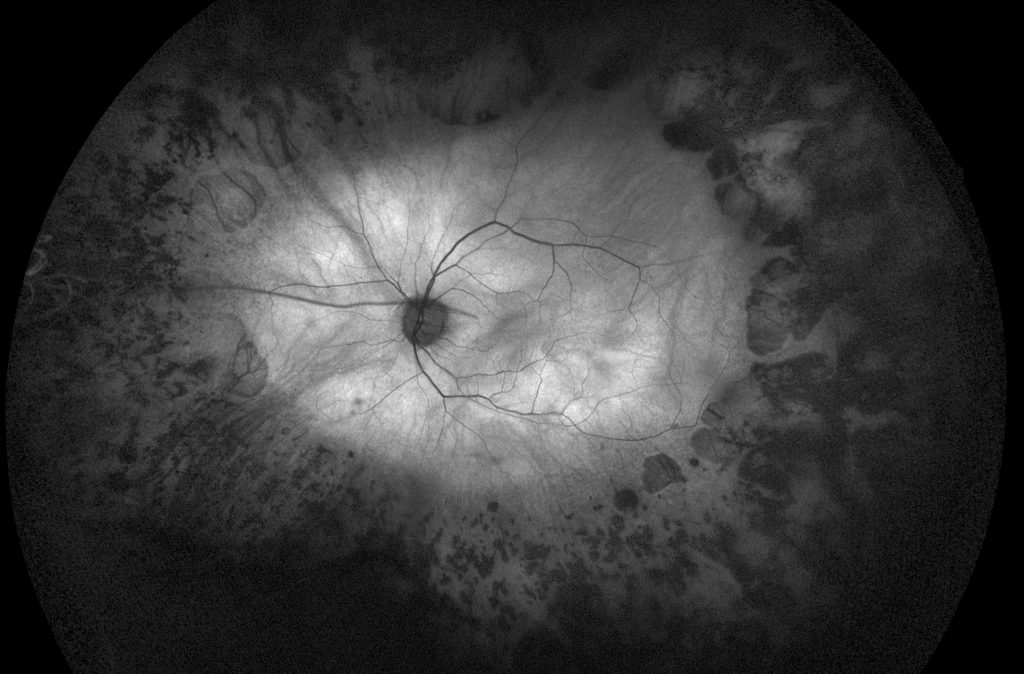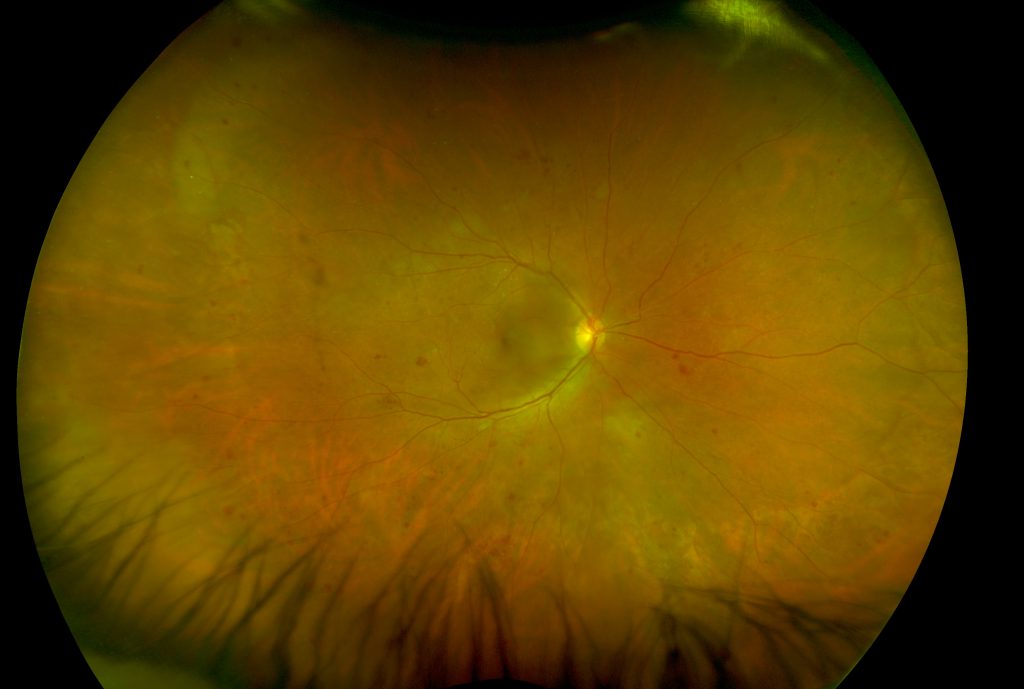In addition to AMD awareness, February has also been named Low Vision Awareness Month, a time to raise awareness about visual impairment and rehabilitation for those who are living with low vision.
What is Low Vision?
Low vision is the term used to describe significant visual impairment that can’t be corrected fully with glasses, contact lenses, medication or eye surgery, it includes:
- Loss of best-corrected visual acuity to worse than 20/70 in the better eye.
- Significant visual field loss. Tunnel vision (lack of vision in the periphery) and blind spots are examples of visual field loss.
- Legal blindness. In the United States, legal blindness typically is defined as visual acuity of 20/200 or worse (in the better eye, with the best possible vision correction in place) or a field of view (visual field) that is constricted to 20 degrees or less.
Disability statistics from the 2014 American Community Survey show that 2.3 percent of individuals ages 16 and over have a visual disability or low vision.
Following are the definitions of visual acuity, according to the World Health Organization. These ratings are for vision in the better eye with the best possible prescription corrective lens:
- 20/30 to 20/60: Mild vision loss, but near-normal vision
- 20/70 to 20/160: Moderate low vision
- 20/200 to 20/400: Severe low vision
- 20/500 to 20/1,000: Profound visual impairment
- Less than 20/1,000: Near-total blindness
- No light perception whatsoever: Total blindness
What Causes Low Vision?
Many eye diseases and conditions can cause low vision, such as:
- Cataracts
- Macular degeneration
- Diabetic retinopathy
- Glaucoma
- Retinitis pigmentosa
- Heredity and eye injuries

optomap af, reveals Retinitis Pigmentosa

optomap image displaying proliferative Diabetic Retinopathy
Depending on the cause of low vision, there may be medications or surgical alternatives that can help slow disease progression and provide as much vision for as long as possible. Those who think they may have a vision impairment that interferes with their ability to perform everyday activities, should see an eye care professional for a complete eye exam. If your eyecare professional finds that you have vision loss that cannot be corrected adequately with standard eyewear, medical treatment or surgery, they can assist you with your next steps in treatment.
To find out more about Optos and optomap and to find an eyecare professional who uses optomap in their practice, please visit our website.
https://www.visionaware.org/info/your-eye-condition/eye-health/low-vision/low-vision-examination/1235
https://www.personalizedcause.com/health-awareness-cause-calendar/amd-low-vision-awareness-month
https://nei.nih.gov/content/low-vision-awareness-month-2019
https://www.allaboutvision.com